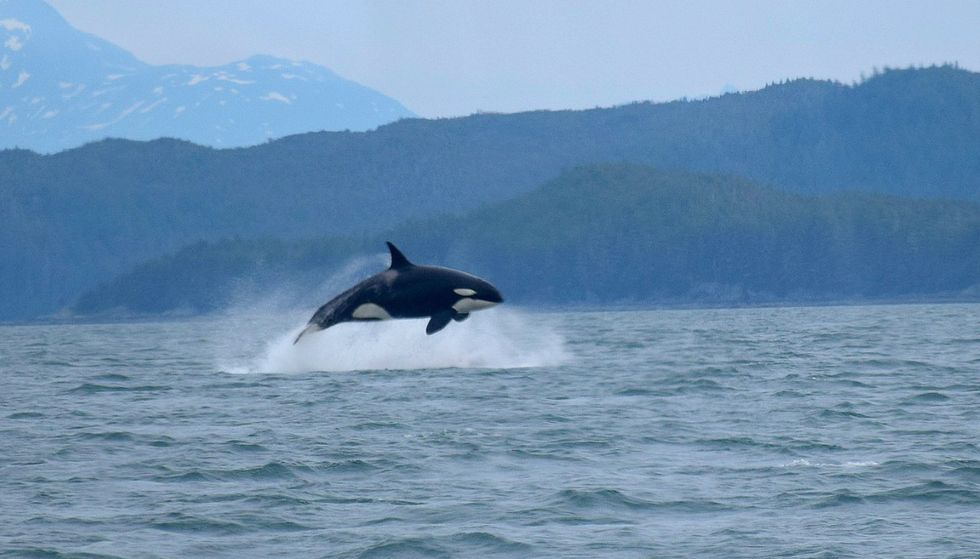Don't Miss
Most Read
Trending on GB News
Two killer whales who have developed an appetite for the liver of great white sharks have ravaged the dynamic of an ocean ecosystem in South Africa.
Local authorities unveiled new research, indicating how a vast number of great whites have been evicted from territories they previously stalked.
A total of eight savaged great white sharks have washed up on the beaches of Gansbaai, around 100km east of Cape Town, following brutal attacks by killer whales.
The killer whales had a penchant for the organs of great white sharks, butchering their bodies, leaving them absent of their livers and hearts.
The great white shark population has been affected following the attacks
Wikki Commons
A pair of killer whales are responsible for the attacks, scientists believe
WIkki Commons
Out of the eight carcasses which were examined on beaches across South Africa, seven of them were missing livers and some were missing hearts.
Researchers had not witnessed anything quite like it.
“They had big gaping holes,” said Alison Towner, a Biologist from the Dyer Island Conservation trust and the Lead Author of a new study that looks at the broader impact of the attacks.
Experts believe the dead sharks' wounds were "distinctively made by the same pair of orcas", who they said had likely killed more great whites, but the carcasses simply hadn’t washed up on shore.
This hunting has coincided with a mass exodus of great whites from a region once famous for its shark population.
The biologist said: "What we seem to be witnessing is a large-scale avoidance, mirroring what we see used by wild dogs in the Serengeti in Tanzania, in response to increased lion presence.
“The ecosystem appears to be shifting, with smaller predators such as the bronze whaler shark already moving in.
"The more the orcas frequent these sites, the longer the great white sharks stay away.”
She added: “Balance is crucial in marine ecosystems — for example, with no great white sharks restricting their behaviour, cape fur seals can predate on critically endangered African penguins.
“There is only so much pressure an ecosystem can take, and the impacts of orcas removing sharks are likely to be wide-reaching.”
Research published in the African Journal of Marine Science revealed how between 2012 and 2019, 106 great white sharks were tagged with transmitters in South Africa, with 36 of them being in the Gansbaai area.
Prior to the devastating attacks which began in 2017, the number of tagged great white sharks detected each day in the Gansbaii area ranged from three to eight.
Following the beaching of the first decimated shark carcass, the number fell to zero.












